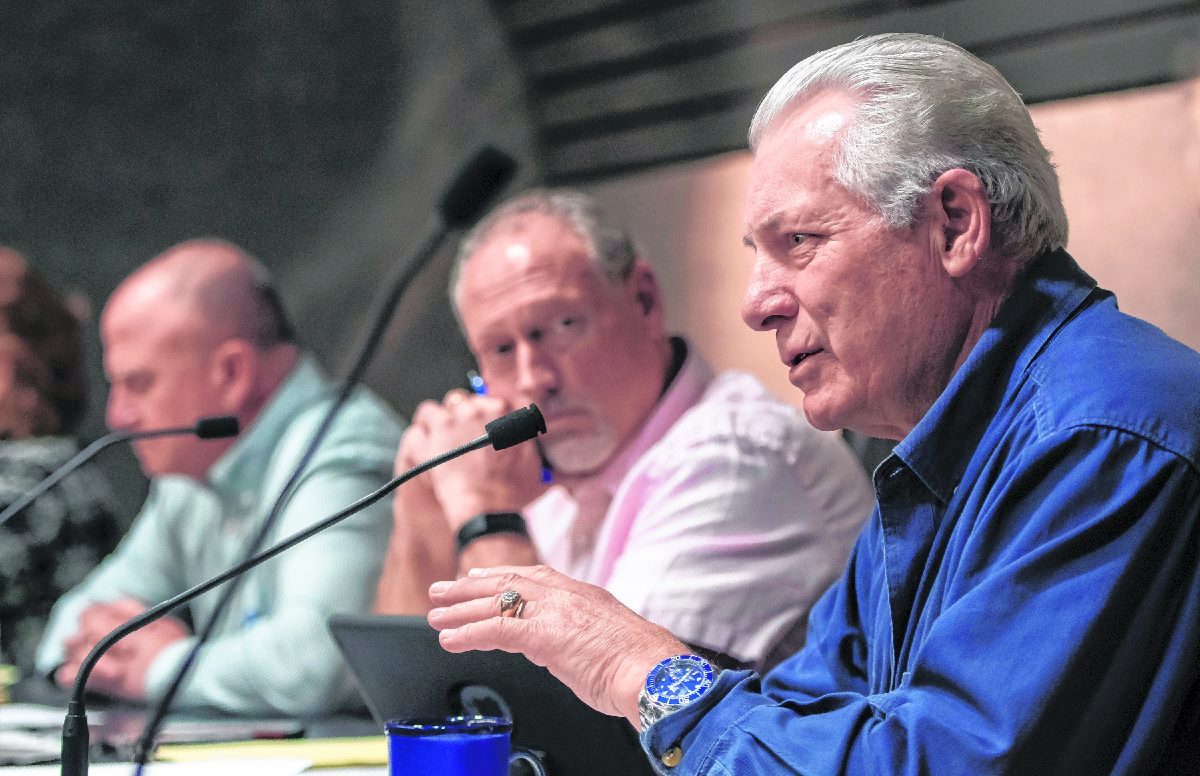An ordinance dictating road impact fees between Johnson County and Bargersville has been delayed by differing opinions over a portion of the road maintenance agreement.
The road impact fee ordinance has been on the agenda for the Board of Commissioners and Bargersville Town Council for nearly two months, while legal representatives for the government bodies ironed out details of the interlocal agreement with officials.
On Dec. 21, the commissioners passed the ordinance on first reading by a vote of 2-1. Commissioner Ron West voted against it.
Bargersville introduced the ordinance at their Dec. 8 meeting but tabled the ordinance on Dec. 21 to wait for the commissioners to act on the agreement.
About the fee
If passed by both the commissioners and the town council, the fee would be charged to individuals or developers who are granted a new building permit within the future Interstate 69 corridor, near the present-day State Road 37.
The town and the county collaborated on the project because both will be significantly impacted by I-69 and roads in both jurisdictions will be equally used by the developments that come, said Luke Mastin, county highway director.
Both Bargersville and the county would collect the same fee for new developments within the I-69 impact zone. Dollars collected would go to priority road projects that the county and town agree upon, according to the interlocal agreement.
The impact zone stretches from the furthest southern portion of Bargersville to County Line Road along SR 37. It includes all of Bargersville and portions of White River Township between SR 37 and State Road 135, along major county roads that will lead to I-69.
New single-family residences will be charged a standard fee of $2,571.64, including a $40.12 bridge and culvert impact fee, based on an average of trips per 24 hours, the ordinance states. Developers would pay this up front and pass it along to the homeowners.
For commercial properties, the fee is not standard, but is based on the amount of traffic the business is expected to generate in a 24-hour period. Costs are calculated using a $268.17 road impact fee and $4.25 culvert and bridge impact fee per trip to the business.
The fee is a way to distribute the cost of road repairs to those developers who are responsible for the additional traffic, Mastin said.
Since the charged based fee is the average of trips per 24-hours, the cost does fall more heavily on small households than larger ones, Mastin said. However, it would be hard to quantify the fee based on household size, because a household grows and shrinks in number over time, he said.
The fee would be collected by town and county planning departments at the time a permit is issued, according to the interlocal agreement. If the cost is over $5,000, it may be paid over time, the ordinance states.
Money from the fee would collect an account within the county budget until enough is accumulated to complete a project in the I-69 impact zone. Town and county officials have mutually agreed upon three initial projects for dollars from early fees: at County Road 144 and Morgantown Road, at Olive Branch Road and Mullinix Road and County Road 144 and Saddle Club Road.
Disagreement over the ordinance
The commissioners passed the Impact Fee Interlocal Agreement 2-1, though West was concerned about the impact on homeowners.
He voted no on the agreement because he disagrees with charging homeowners this fee because they already pay wheel and gas taxes that go toward road maintenance, he said.
However, the commissioners came to a sticking point on the ordinance cementing the impact fee.
West objected to a section that states the county highway director, through a mutual agreement with the town’s street superintendent, could perform work without payment. The county highway director should never perform a significant amount of services for another municipality without payment, he said. He asked that the clause either be stricken from the agreement or have a not-to-exceed amount attached.
Multiple county officials told West the clause would not open the county up to a situation where the highway director would be expected to do an expensive task without pay.
This clause would be used for small tasks such as plowing a Bargersville street with a county truck while turning around for another pass on the county road, Mastin said.
The clause also refers to project management work that Mastin already does for roads within the town that the county maintains, as well as work to be completed with road impact fee dollars.
Taking the clause out would cause more harm than good because it would delay the approval process for this ordinance and would likely force Mastin to consult the commissioners about small tasks, legal counselors for the county said.
For Commissioner Kevin Walls, attaching a dollar amount would be tedious and hard to quantify for small tasks. Delaying the process at this point for this clause would be detrimental, he said.
As neither side could come to an agreement Commissioner Brian Baird called for a motion but none was made.
After more back and forth, Baird asked for a motion to table the ordinance for a second opinion from another attorney. The commissioners voted unanimously to table it and called a special meeting for 10 a.m. Thursday for a second reading vote on the ordinance.





